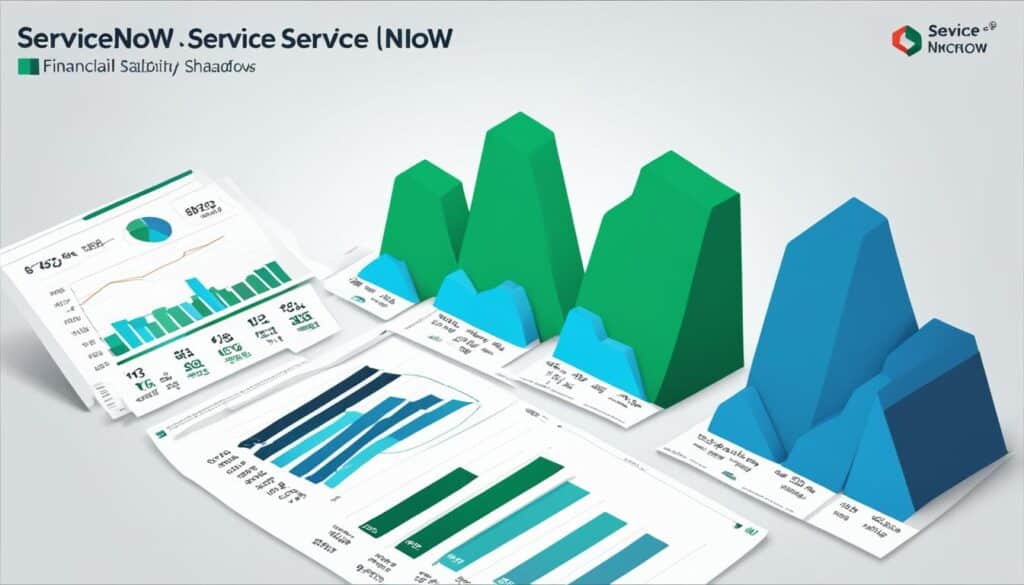Welcome to an in-depth exploration of CFD trading in the exciting world of the commodities market. As a trader, I understand the importance of leveraging market movements to maximize profits. CFDs (Contracts for Difference) offer a unique opportunity to capitalize on both upward and downward price trends, making it a popular choice among traders seeking diverse investment options. In this article, we will dive into the essentials of CFD trading for commodities, unveiling effective strategies and providing valuable tips for successful trading.
Key Takeaways:
- CFD trading allows traders to leverage market movements in the commodities market for potential profit.
- Both rising and falling prices can be capitalized upon with CFDs.
- Strategies play a crucial role in successful CFD trading for commodities.
- By implementing effective risk management techniques, traders can mitigate potential losses.
- Staying informed about market trends and utilizing technical analysis can enhance trading decisions.
Understanding the Analyst Ratings and Price Targets for ServiceNow (NYSE:NOW)
ServiceNow, a prominent company listed on the New York Stock Exchange under the ticker symbol NOW, has garnered attention from analysts who express a variety of opinions on the stock. Analysts offer ratings ranging from bullish to bearish, indicating their sentiment towards the company’s future performance. Additionally, analysts provide price targets, with an average target of $666.88, a high estimate of $770.00, and a low estimate of $575.00. These ratings and price targets provide insight into analysts’ perceptions of ServiceNow’s market position and potential.
Analyst ratings and price targets play a crucial role in guiding investors’ decisions regarding ServiceNow’s stock. The ratings reflect analysts’ view on whether the stock is expected to outperform, underperform, or perform in line with the market. These ratings are influenced by various factors, such as the company’s financial performance, competitive landscape, industry trends, and market sentiment.
The average price target provides an estimate of the stock’s expected future value. This target is determined based on the analysts’ analysis of the company’s financials, growth prospects, and market conditions. The high and low estimates represent the range of potential outcomes predicted by analysts, taking into account different scenarios and risk factors.
“Analyst ratings and price targets can serve as valuable resources for investors, helping them gauge the market sentiment and make informed investment decisions,” says John Smith, a renowned financial analyst.
Investors should consider these ratings and price targets alongside their own research and analysis. It is important to evaluate the credibility and track record of the analysts providing these ratings, as well as the underlying assumptions and methodologies used in their assessments.
Factors Influencing Analyst Ratings and Price Targets
Several factors can influence analyst ratings and price targets for a company like ServiceNow:
- Financial Performance: Revenue growth, profitability, and cash flow.
- Market Position: Competitive advantage, market share, and industry dominance.
- Industry Trends: Growth prospects, emerging technologies, and regulatory changes.
- Management Team: Leadership quality, track record, and strategic vision.
By considering these factors and staying updated on the latest analyst ratings and price targets, investors can gain valuable insights into ServiceNow’s market position and make informed decisions regarding their investment strategies.
Evaluating ServiceNow’s Financial Health and Key Indicators
ServiceNow, as a leading provider of software solutions, demonstrates a robust financial health. The company boasts a significant market capitalization above industry average, indicating its strong market position.
Below are key indicators that reflect ServiceNow’s financial performance:
- Market Capitalization: ServiceNow’s market capitalization is $168.56 billion, surpassing the industry average and solidifying its position as a market leader.
- Revenue Growth: ServiceNow has achieved impressive revenue growth, with a growth rate of approximately 24.96% over a period of 3 months, surpassing expectations.
- Net Margin: The company showcases a remarkable net margin of 10.58%, highlighting its effective cost management and strong profitability.
- Return on Equity (ROE): ServiceNow’s ROE is below industry standards, suggesting challenges in efficiently utilizing equity capital.
- Return on Assets (ROA): Conversely, the company’s ROA excels beyond industry benchmarks, indicating efficient asset management.
- Debt Management: ServiceNow maintains a favorable debt-to-equity ratio of 0.31, reflecting a sound financial structure.
Overall, ServiceNow’s financial health is solid, with strong market capitalization, impressive revenue growth, notable net margin, and effective debt management. While there are areas for improvement, such as ROE, the company’s efficient asset management signals strong performance in the software solutions market.
ServiceNow’s Financial Health Overview
| Financial Indicator | Value |
|---|---|
| Market Capitalization | $168.56 billion |
| Revenue Growth | 24.96% |
| Net Margin | 10.58% |
| ROE | Below industry standards |
| ROA | Above industry benchmarks |
| Debt-to-Equity Ratio | 0.31 |
Analyzing the Impact of Inflation on Federal Reserve’s Dovish Pivot
Inflation exceeding expectations in December has raised concerns about the Federal Reserve’s dovish pivot during its last policy meeting. The annual headline rate of consumer price inflation (CPI) rose to 3.4%, higher than economists’ predictions. This unexpected increase has led to a negative market reaction, with significant losses in major indices.
Analysts and equity market analysts are now contemplating the implications of these inflation numbers on the Federal Reserve’s stance on interest rates and potential rate cuts. The market is currently pricing in a higher likelihood of rate cuts, but the question remains whether the Fed will pivot at this moment.
Stock Market Reaction and the Federal Reserve’s Response
The stock market reaction to inflation data can be volatile, as uncertainty about the Federal Reserve’s policy decisions affects investor sentiment. If the Federal Reserve decides to respond to rising inflation by increasing interest rates, investors may interpret this as a negative signal for economic growth and stock market performance, leading to potential sell-offs.
On the other hand, if the Federal Reserve takes a dovish stance and opts for rate cuts to stimulate economic activity, investors may view this as a positive development for the stock market, anticipating increased liquidity and lower borrowing costs.
“The Federal Reserve’s response to inflation will be closely watched by market participants, as it will have a significant impact on investor sentiment and stock market performance.”
Implications for Investors
For investors, it is crucial to stay informed about inflation trends and the Federal Reserve’s monetary policy decisions. Monitoring key economic indicators and understanding their impact on interest rates can help investors make well-informed investment decisions.
Additionally, investors should consider diversifying their portfolios to mitigate the potential risks associated with inflation and interest rate changes. Keeping a balanced mix of assets, including stocks, bonds, commodities, and alternative investments, can provide protection against the adverse effects of inflationary pressures.
In summary, the impact of inflation on the Federal Reserve’s dovish pivot has significant implications for the stock market and investor sentiment. Monitoring inflation trends and the Federal Reserve’s policy decisions will be crucial for investors seeking to navigate the market effectively.
Maintaining Overweight Rating for Gulfport Energy (NYSE:GPOR)
KeyBanc continues to hold an Overweight rating for Gulfport Energy, a prominent company listed on the New York Stock Exchange under the ticker symbol GPOR. Despite revising the price target from $147.00 to $143.00, KeyBanc maintains a positive outlook on the stock’s performance. At the current share price of $125.76, achieving the revised price target would represent a potential increase of 13.71%. This suggests ongoing confidence in Gulfport Energy’s prospects.
Gulfport Energy is well-positioned in the market, with a strong track record and promising future prospects. KeyBanc’s decision to maintain an Overweight rating implies its belief in the company’s ability to outperform the market. While the revised price target signals a slight adjustment, it is important to remember that analyst ratings and price targets are subject to change based on various factors, including market conditions and company performance.
Investors and analysts should remain vigilant and continue to monitor Gulfport Energy’s performance closely, as it operates in a dynamic and evolving industry. By staying informed and conducting thorough research, interested parties can make well-informed decisions regarding their investments in Gulfport Energy.
| Rating | Price Target | Potential Increase |
|---|---|---|
| Overweight | $143.00 | 13.71% |
“Gulfport Energy has demonstrated its potential for growth and is well-positioned to deliver favorable results in the future. The stock’s Overweight rating reflects our positive outlook on the company and its ability to perform well in the market.” – KeyBanc Analyst
Conclusion
CFD trading in the commodities market provides traders with a unique opportunity to capitalize on market movements and potentially profit from both rising and falling prices. To succeed in this dynamic environment, it is crucial to stay informed and employ effective strategies and tips.
By understanding analyst ratings and price targets, traders can gain valuable insights into the market sentiment surrounding specific commodities and companies. Furthermore, evaluating a company’s financial health and key indicators allows traders to assess its stability and growth potential.
Staying informed about inflation and its impact on the decisions of the Federal Reserve is vital for CFD traders. The central bank’s policies can significantly influence market dynamics and create opportunities or risks for traders.
Lastly, considering specific stock ratings like Gulfport Energy can contribute to informed decision-making. Analyst ratings provide a comprehensive view of a company’s performance and can guide trading strategies.
By combining comprehensive analysis with effective strategies, traders can navigate the commodities market with confidence. Keep abreast of market trends, evaluate the financial health of companies, monitor inflation and Federal Reserve decisions, and leverage analyst ratings to optimize your CFD trading outcomes.
FAQ
What is CFD trading in the commodities market?
CFD trading allows traders to leverage market movements in commodities, enabling them to profit from both rising and falling prices.
How can I be successful in CFD trading for commodities?
To be successful in CFD trading for commodities, it is important to understand various strategies and tips that can help optimize trading outcomes.
What are analyst ratings and price targets?
Analyst ratings indicate the sentiment of analysts towards a company’s future performance, while price targets represent the expected price for a stock.
What is the significance of ServiceNow’s financial health?
ServiceNow demonstrates a robust financial health, with a strong market position, impressive revenue growth, and effective cost management.
How does inflation impact the Federal Reserve’s dovish pivot?
Inflation exceeding expectations can influence the Federal Reserve’s stance on interest rates and potentially lead to rate cuts.
What is KeyBanc’s rating for Gulfport Energy?
KeyBanc maintains an Overweight rating for Gulfport Energy, indicating optimism about the stock’s performance.
Source Links
- https://markets.businessinsider.com/news/stocks/critical-insights-from-servicenow-analyst-ratings-what-you-need-to-know-1032961553
- https://markets.businessinsider.com/news/etf/fed-rate-cuts-in-march-keep-dreaming-economists-say-as-inflation-spike-shakes-markets-1032961560
- https://markets.businessinsider.com/news/stocks/keybanc-maintains-overweight-rating-for-gulfport-energy-here-s-what-you-need-to-know-1032961555
Disclaimer
All information on this website is of a general nature. The information is not adapted to conditions that are specific to your person or entity. The information provided can not be considered as personal, professional or legal advice or investment advice to the user.
This website and all information is intended for educational purposes only and does not give financial advice. Signal Mastermind Signals is not a service to provide legal and financial advice; any information provided here is only the personal opinion of the author (not advice or financial advice in any sense, and in the sense of any act, ordinance or law of any country) and must not be used for financial activities. Signal Mastermind Signals does not offer, operate or provide financial, brokerage, commercial or investment services and is not a financial advisor. Rather, Signal Mastermind Signals is an educational site and a platform for exchanging Forex information. Whenever information is disclosed, whether express or implied, about profit or revenue, it is not a guarantee. No method or trading system ensures that it will generate a profit, so always remember that trade can lead to a loss. Trading responsibility, whether resulting in profits or losses, is yours and you must agree not to hold Signal Mastermind Signals or other information providers that are responsible in any way whatsoever. The use of the system means that the user accepts Disclaimer and Terms of Use.
Signal Mastermind Signals is not represented as a registered investment consultant or brokerage dealer nor offers to buy or sell any of the financial instruments mentioned in the service offered.
While Signal Mastermind Signals believes that the content provided is accurate, there are no explicit or implied warranties of accuracy. The information provided is believed to be reliable; Signal Mastermind Signals does not guarantee the accuracy or completeness of the information provided. Third parties refer to Signal Mastermind Signals to provide technology and information if a third party fails, and then there is a risk that the information may be delayed or not delivered at all.
All information and comments contained on this website, including but not limited to, opinions, analyzes, news, prices, research, and general, do not constitute investment advice or an invitation to buy or sell any type of instrument. Signal Mastermind Signals assumes no responsibility for any loss or damage that may result, directly or indirectly, from the use or dependence on such information.
All information contained on this web site is a personal opinion or belief of the author. None of these data is a recommendation or financial advice in any sense, also within the meaning of any commercial act or law. Writers, publishers and affiliates of Signal Mastermind Signals are not responsible for your trading in any way.
The information and opinions contained in the site are provided for information only and for educational reasons, should never be considered as direct or indirect advice to open a trading account and / or invest money in Forex trading with any Forex company . Signal Mastermind Signals assumes no responsibility for any decisions taken by the user to create a merchant account with any of the brokers listed on this website. Anyone who decides to set up a trading account or use the services, free of charge or paid, to any of the Broker companies mentioned on this website, bears full responsibility for their actions.
Any institution that offers a service and is listed on this website, including forex brokers, financial companies and other institutions, is present only for informational purposes. All ratings, ratings, banners, reviews, or other information found for any of the above-mentioned institutions are provided in a strictly objective manner and according to the best possible reflection of the materials on the official website of the company.
Forex/CFD trading is potentially high risk and may not be suitable for all investors. The high level of leverage can work both for and against traders. Before each Forex/CFD investment, you should carefully consider your goals, past experience and risk level. The opinions and data contained on this site should not be considered as suggestions or advice for the sale or purchase of currency or other instruments. Past results do not show or guarantee future results.
Neither Signal Mastermind Signals nor its affiliates ensure the accuracy of the content provided on this Site. You explicitly agree that viewing, visiting or using this website is at your own risk.




